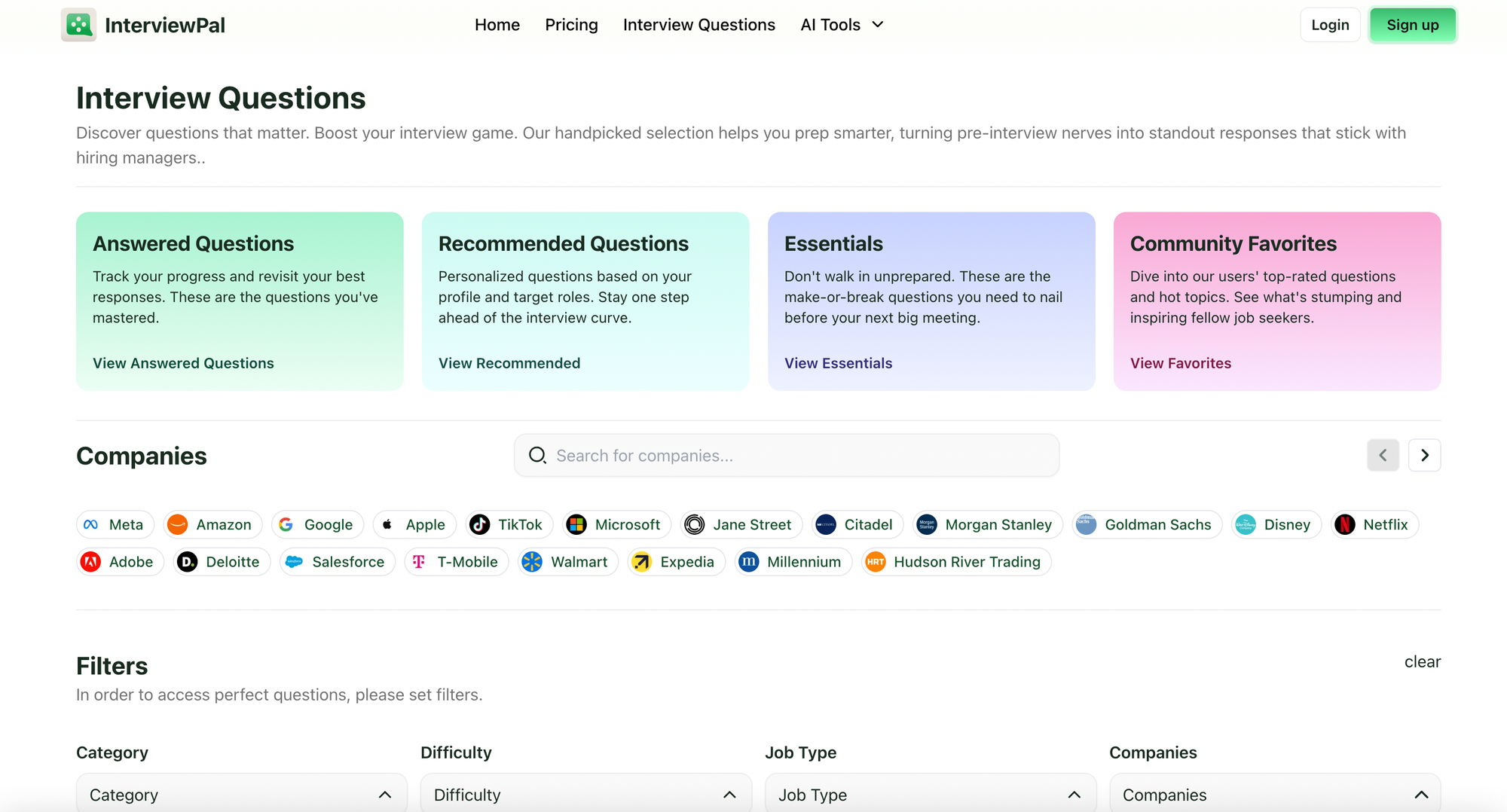As a program manager, you play a crucial role in guiding large, multi-faceted projects to success. But before you can showcase your skills within a company, you have to navigate the interview process. Below are 25 essential questions that every program manager should be prepared for, each offering insights into your strategic, organizational, and interpersonal abilities.
Also Read: Top 20 Program Manager Technical Interview Questions with Expert Answers
1. Describe a complex program you managed.
Example Answer (Technical Program Manager): "In my previous role, I managed a large-scale software development program that involved coordinating across three teams—development, testing, and design. I established clear milestones, set up weekly alignment meetings, and implemented a risk management strategy to preempt potential delays. The program was delivered ahead of schedule, with a 10% reduction in planned costs."
Example Answer (Healthcare Program Manager): "I managed a complex healthcare program aimed at improving patient care by integrating an electronic health records system across multiple departments. This required working closely with clinical staff, IT, and administrative teams. I facilitated regular workshops to gather feedback, ensured regulatory compliance, and mitigated concerns regarding patient privacy. We achieved successful implementation with minimal disruption to daily operations."
2. How do you prioritize projects within a program?
Example Answer (Technical Program Manager): "I prioritize projects based on factors like strategic alignment, stakeholder impact, and resource availability. For example, in a past program involving multiple tech updates, I focused first on projects that had dependencies on others, ensuring the foundational tasks were completed before the less critical ones."
Example Answer (Financial Services Program Manager): "I begin by analyzing each project’s ROI and its alignment with our overall business goals. In my previous role, I worked on prioritizing initiatives based on regulatory urgency and financial impact, which allowed the company to mitigate compliance risks while optimizing resources."
3. Describe a situation where you had to resolve conflicts within a program.
Example Answer (Tech Industry): "During a program rollout, two teams disagreed on resource allocation, which was slowing down progress. I organized a meeting to facilitate open discussion, focusing on shared objectives and identifying compromise solutions. This approach not only resolved the immediate conflict but fostered better cross-team collaboration."
Example Answer (Non-Profit Sector): "In a non-profit setting, our program had conflicts between departments over limited funding. I gathered both teams, facilitated an honest discussion, and adjusted the budget allocation based on project priorities. By encouraging transparency and collaboration, I resolved the conflict amicably."
4. How do you ensure effective communication within a program?
Example Answer (Corporate Program Manager): "I establish a communication plan at the start, detailing when and how updates will be shared. For example, in my last role, I implemented a bi-weekly email update, a monthly executive briefing, and encouraged the use of collaborative tools like Slack and Trello for real-time communication."
Example Answer (Educational Sector Program Manager): "I ensure transparency by conducting regular stakeholder meetings and providing accessible project dashboards. In an education-focused project, I held weekly updates with faculty and monthly reports for senior management to maintain alignment."
5. How do you manage program risks?
Example Answer (Tech Program Manager): "I start by identifying potential risks during the planning phase and assign likelihood and impact scores to each. For instance, in a recent software deployment, I recognized the risk of data migration issues and planned contingencies, including backup data protocols and additional testing."
Example Answer (Construction Program Manager): "In construction, safety risks are paramount. I conducted thorough risk assessments, established protocols, and held safety briefings before each project phase. This proactive approach minimized incidents and ensured adherence to safety standards."

6. How do you measure program success?
Example Answer (Healthcare Program Manager): "I define success metrics during planning. For example, in a program aimed at improving patient response times, I set KPIs related to response times, patient satisfaction scores, and error rates. Tracking these KPIs enabled us to measure improvements accurately."
Example Answer (Corporate Program Manager): "In a corporate setting, I align success metrics with strategic goals. For instance, in a cost-reduction initiative, I focused on savings achieved, project completion times, and stakeholder satisfaction."
7. How do you manage program stakeholders?
Example Answer (Non-Profit Program Manager): "In non-profit work, stakeholder management is critical. I maintain regular communication, address concerns promptly, and engage stakeholders through progress reports and feedback sessions. This approach fosters trust and ongoing support."
Example Answer (Corporate Program Manager): "I map out stakeholders by influence and impact and tailor communication accordingly. High-impact stakeholders receive detailed reports, while others get periodic summaries, ensuring everyone is informed and engaged."
8. Can you share an example of a successful program you implemented?
Example Answer (Tech Program Manager): "I led a cloud migration program, transitioning our servers to AWS, which reduced operational costs by 30% and improved system reliability. This required careful planning and coordination across IT, finance, and operations."
Example Answer (Healthcare Program Manager): "I implemented a new patient scheduling system that improved efficiency by 33% and reduced wait times significantly, enhancing patient satisfaction and streamlining clinic operations."
9. How do you ensure quality control in program deliverables?
Example Answer (Manufacturing Program Manager): "Quality control is integrated at each stage. I set specific quality standards and perform periodic reviews. In a recent program, I established checkpoints in production phases, ensuring each deliverable met regulatory standards before advancing."
Example Answer (Corporate Program Manager): "I use quality benchmarks and regular audits to ensure deliverables meet expectations. For example, in a product development program, we had quality gates after each phase to verify outcomes before proceeding."
10. How do you handle changes in program scope or requirements?
Example Answer (Construction Program Manager): "Scope changes are common. I evaluate the impact, consult stakeholders, and adjust the timeline or resources accordingly. Recently, I managed a project where last-minute client requirements required revising plans and reallocating resources without impacting deadlines."
Example Answer (IT Program Manager): "When faced with scope changes, I assess their impact on resources and timeline. For a recent IT project, we received additional feature requests mid-program. I coordinated with stakeholders to adjust priorities and secured extra resources."
11. How do you motivate and inspire your program team?
Example Answer (Tech Program Manager): "I believe in transparent communication and regular feedback. I hold monthly one-on-ones to understand each member’s goals and provide resources to achieve them. Recognizing accomplishments publicly also motivates the team."
Example Answer (Healthcare Program Manager): "In healthcare, I emphasize the impact of our work. Regular meetings include sharing patient feedback, which motivates the team by reminding them of the value they bring."
12. How do you ensure program compliance with regulations and policies?
Example Answer (Healthcare Program Manager): "In healthcare, compliance with regulations like HIPAA is non-negotiable. I ensure compliance by embedding regulatory checkpoints at each stage of the program and regularly updating my team on policy changes. In my last role, I worked closely with legal and compliance teams to ensure all patient data was handled according to strict confidentiality guidelines."
Example Answer (Corporate Program Manager): "I stay up-to-date with relevant regulations and integrate compliance into our workflows. In a finance-focused program, I created a compliance checklist and held regular audits to ensure that all deliverables aligned with industry standards and company policies."
13. How do you handle competing priorities within a program?
Example Answer (Tech Program Manager): "When managing competing priorities, I assess each project’s urgency, alignment with our strategic objectives, and stakeholder expectations. I also use a prioritization matrix to help visualize which tasks have the highest impact and negotiate resources with key stakeholders as needed."
Example Answer (Education Program Manager): "In the educational sector, shifting priorities are common. I rank tasks by their impact on program outcomes and adjust schedules to accommodate high-priority needs. Recently, when new course requirements arose unexpectedly, I rescheduled lower-priority tasks and coordinated with faculty to meet deadlines."
14. How do you ensure the successful completion of a program within budget?
Example Answer (Corporate Program Manager): "Budget management starts with accurate forecasting. I monitor expenses continuously, identify cost-saving opportunities, and use project management tools to track spending. In a recent cost-control program, my team and I saved 12% by optimizing resource allocation."
Example Answer (Non-Profit Program Manager): "With limited budgets, careful financial tracking is essential. I set clear spending limits for each project phase and review budget utilization bi-weekly. In a recent non-profit project, this approach allowed us to complete the program under budget, enabling us to reallocate funds to additional initiatives."
15. How do you foster innovation within a program?
Example Answer (Tech Program Manager): "I foster innovation by creating a culture that values experimentation and learning. I encourage brainstorming sessions, support trial-and-error in new approaches, and celebrate innovative ideas. For example, I led an initiative where team members proposed solutions for optimizing code, resulting in a 18% increase in system efficiency."
Example Answer (Education Program Manager): "In education, fostering innovation means supporting fresh teaching methods. I encourage team members to propose creative solutions for student engagement, like integrating gamification in our programs. By providing resources and recognizing creative contributions, we create a collaborative and innovative environment."
Also Read: First-Time Manager? How to Ace Your First Manager Interview
16. How do you manage program timelines effectively?
Example Answer (Manufacturing Program Manager): "I develop a realistic timeline based on the scope, dependencies, and resources. For a manufacturing rollout, I break down tasks, set milestones, and conduct weekly check-ins to ensure we’re on track. This structure allows us to anticipate delays and adjust plans before they impact overall progress."
Example Answer (Tech Program Manager): "I use Gantt charts and project management software to map timelines and identify dependencies. In a recent tech program, I allocated buffer time for key phases and conducted regular progress reviews to ensure we stayed on track and met deadlines."
17. How do you motivate a team to achieve program goals?
Example Answer (Corporate Program Manager): "I believe motivation stems from clarity and recognition. I set clear goals, hold regular feedback sessions, and celebrate achievements. In my last role, I introduced monthly awards for 'best effort,' which fostered a spirit of collaboration and enthusiasm."
Example Answer (Healthcare Program Manager): "In healthcare, reminding the team of the program’s impact on patient care can be a powerful motivator. I regularly share patient success stories and emphasize how our work makes a difference. This approach keeps morale high, even during challenging projects."
18. Describe a time when you had to make a tough decision under pressure.
Example Answer (Construction Program Manager): "During a construction project, we faced unexpected supply shortages. To keep the project on schedule, I had to make a quick decision to source alternative suppliers. Although it increased our initial budget, it allowed us to avoid costly delays. It was a tough call, but necessary for the project's success."
Example Answer (Corporate Program Manager): "In a high-stakes project, we encountered data security issues close to the launch date. Under pressure, I decided to delay the launch by a week to conduct a thorough review, prioritizing security over timing. This decision protected our reputation and ensured a safe rollout."
19. How do you handle a project that goes off-track?
Example Answer (Tech Program Manager): "When a project veers off-track, I first diagnose the root cause, whether it's resource-related, time-based, or due to external factors. Recently, I handled a project delay by reassigning tasks and adding short daily check-ins, which brought the project back on schedule."
Example Answer (Corporate Program Manager): "I reassess timelines, realign resources, and communicate adjustments with stakeholders transparently. In a recent corporate initiative that was behind schedule, I restructured team assignments and updated the project plan, enabling us to meet the revised deadline."
20. How do you ensure team alignment on program objectives?
Example Answer (Non-Profit Program Manager): "I start by creating a shared vision and ensuring that each team member understands their role in achieving it. I also hold monthly alignment sessions to discuss progress, challenges, and upcoming tasks. This approach has helped maintain alignment across different departments."
Example Answer (Tech Program Manager): "To ensure alignment, I communicate clear objectives and follow up with regular updates. I use project dashboards that display metrics and milestones, so the entire team remains on the same page and is focused on shared goals."
21. What approaches would you take to gain support from other internal teams?
Example Answer (Corporate Program Manager): "Gaining support begins with clear communication about the program’s benefits. I reach out to teams individually, address their concerns, and highlight the mutual benefits. In my last role, I involved the marketing and finance teams early on to gain their buy-in for a product launch."
Example Answer (Healthcare Program Manager): "In healthcare, collaboration is key. I organize meetings with each team to explain the program’s objectives and how it supports patient care, addressing any potential concerns early to secure their commitment."
22. How do you adapt to changing requirements?
Example Answer (IT Program Manager): "Adaptability is essential in IT. When requirements change, I reassess timelines, resources, and prioritize tasks accordingly. For instance, a recent project required an unplanned feature addition. I adjusted our timeline and secured additional resources to accommodate the change."
Example Answer (Corporate Program Manager): "I manage changes by reassessing priorities, timelines, and communicating adjustments clearly to stakeholders. In a recent corporate initiative, we experienced changes mid-program; I facilitated discussions with the leadership to ensure everyone was aligned with the revised goals."
23. Describe a time when you had to manage a limited budget.
Example Answer (Non-Profit Program Manager): "In non-profit work, budgets are tight. I prioritize spending based on program impact, negotiate vendor discounts, and repurpose resources creatively. Recently, I managed to complete a program under budget by reallocating unused resources and securing discounted services."
Example Answer (Corporate Program Manager): "With limited resources, I focus on optimizing costs through bulk purchasing and leveraging in-house resources. For example, during a cost-reduction initiative, I negotiated with suppliers and reduced costs by 20%, allowing us to meet our budget constraints."
24. Describe a time you led a project with a diverse team.
Example Answer (Tech Program Manager): "In a global tech rollout, I managed a team across three continents, each with different work cultures. I scheduled regular check-ins, encouraged cultural exchange, and set clear milestones. This approach fostered mutual respect and streamlined our collaboration."
Example Answer (Healthcare Program Manager): "Healthcare teams often bring diverse backgrounds and perspectives. In a recent patient-care program, I encouraged open dialogue, acknowledged cultural differences, and emphasized the common goal of patient well-being, which enhanced collaboration."
25. How would you gauge the impact of timeline changes on a project’s success?
Example Answer (Construction Program Manager): "In construction, timeline changes can heavily impact budgets and resources. I analyze dependencies, calculate cost implications, and communicate adjustments to stakeholders. Recently, when we faced delays due to weather, I adjusted timelines to keep critical tasks on track."
Example Answer (Corporate Program Manager): "I assess impact by evaluating project dependencies, cost implications, and stakeholder expectations. In a recent corporate program, I implemented a timeline adjustment strategy, prioritizing high-impact tasks and securing buy-in from stakeholders for the adjusted schedule."

Each of these 25 questions addresses a core aspect of program management, from handling conflicts and prioritizing projects to ensuring compliance and fostering team motivation. Preparing for these questions with specific examples helps you communicate your experience and fit for the program manager role effectively.
At InterviewPal, we offer nearly 2,000 interview questions to practice for various program management scenarios. Practicing these questions not only sharpens your responses but also helps you handle different interview dynamics with confidence. By understanding the complexities of program management and preparing with real-world examples, you can walk into your interview ready to make a lasting impression.



